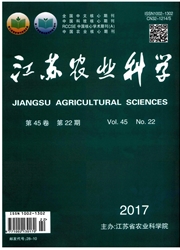

 中文摘要:
中文摘要:
将农户分为四种不同类型劳动力转移农户,通过对辽宁省501个农户的调研数据,研究劳动力转移对农户土地流转行为的影响。研究显示,无劳动力转移的农户更倾向于土地转入,土地转出农户中所占比重更大的是有老一代劳动力转移的农户。进一步对农户土地流转行为影响因素的Logistic回归分析发现,外出务工人员比例、村到乡镇的距离对农户土地转入行为产生负向影响,而人均耕地面积则有利于农户土地转入行为的发生;外出务工人员比例、年人均收入水平、村到乡镇的距离均与农户土地转出行为成显著的正相关,而务农劳动力总量对土地转出行为产生负向影响。不同类型劳动力转移对农户土地流转行为的影响关系在统计上并不显著。
 英文摘要:
英文摘要:
This paper, dividing the surveyed peasant households into four types according to the form of labor transfer, studied the effect of labor transfer on the peasant households' transfer of land making use of the data from a survey of 501 peasant households who lived in Liaoning province. Result showed that peasant households without labor transfer tended to transfer other people's land to themselves and the peasant households with the transfer of older generations of laborers took a larger proportion of the peasant households who had transferred their land to other people. A further Logistic Regression Analysis of influential factors of the land transfer of peasant households showed that the proportion of migrant workers and the distance from village to town produced negative influence on peasant households' transfer of other people's land to themselves while the per capita area of cultivated farmland was a positive influential factor for the peasant households' transfer of other people's land to themselves; the proportion of migrant workers, the annual per capita income level and the distance from village to town were all correlated obviously positively while the total farming population produced negative influence on the peasant households' transfer of their land to other people; and the type of labor transfer had no obvious influence on peasant households' transfer of land statistically.
 同期刊论文项目
同期刊论文项目
 同项目期刊论文
同项目期刊论文
 期刊信息
期刊信息
